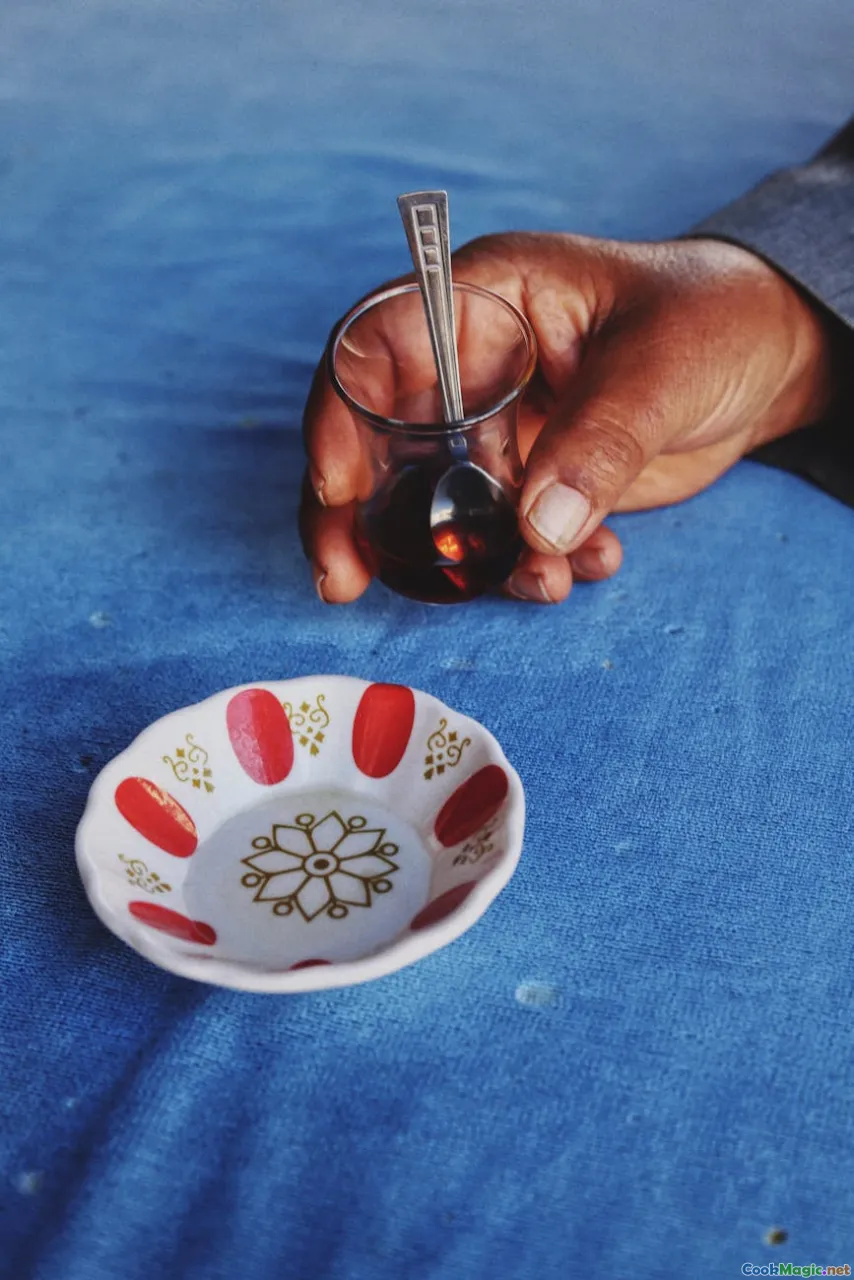The Cultural Importance of Chai in Kyrgyz Meals
8 min read Discover the deep-rooted cultural significance of chai in Kyrgyz cuisine, from daily life to traditional ceremonies and social bonds. April 27, 2025 09:00
The Cultural Importance of Chai in Kyrgyz Meals
Imagine a land vast and rugged, where endless steppes stretch beneath a sky that shifts from azure to amber as the day wanes. In Kyrgyzstan, a nation defined by its majestic mountains and nomadic heritage, one simple yet profound beverage unites its people—chai, or traditional Kyrgyz tea. But this isn't just a drink; it's a vessel of history, hospitality, and social connection that embodies the very soul of Kyrgyz culture.
An Ancient Tradition Brewed in Every Household
For Kyrgyz families, chai is more than a morning pick-me-up or an afternoon refreshment. It is woven into the fabric of daily life, from the bustling markets of Bishkek to the quiet yurts nestled in the mountains. Every cup of chai tells a story—of ancestors who carried it across the Silk Road, of nomads who brewed it over open fires, and of communities that gather around steaming kettles as a symbol of warmth and unity.
The Ritual of Preparation
Preparing Kyrgyz chai is an art form, often passed down through generations. Typically, a samovar—a traditional Russian-style metal urn—is used to boil water, creating a fragrant, bubbling core of warmth in the home or teahouse. Loose black tea leaves, sometimes blended with herbs or dried fruits, steep slowly, releasing a rich aroma that fills the air. The process is deliberate, patient, almost meditative.
Once brewed, the tea is poured into small, handle-less glasses called piala, often accompanied by a sugar cube or a piece of dried fruit. The addition of cow’s milk or a splash of sour milk (kymyz) varies by region and personal preference, adding a creamy or tangy dimension to the drink.
Sensory Experience
The first sip of Kyrgyz chai is a warm embrace. The tea’s deep, smoky aroma is complemented by the sweetness of sugar or the earthy tang of fermented milk. The texture is smooth yet invigorating, awakening the senses and forging a moment of pause amid daily routines.
Chai as a Social Catalyst
In Kyrgyz culture, chai is inherently social. It is the cornerstone of hospitality, a gesture of friendship, and a bridge connecting generations.
Hospitality and Generosity
Offering a cup of chai is a sign of respect and kindness. Whether visiting a neighbor or welcoming guests into a home, serving tea is an act of generosity that transcends language barriers. The host might insist on multiple refills, ensuring that the guest feels valued and cared for.
Communal Gatherings
In traditional Kyrgyz society, tea gatherings are communal events—during festivals, weddings, or even everyday conversations. Men and women sit around a kitchen corneror ayurt, sipping steaming chai while sharing stories, jokes, and news. The ritual of pouring and re-filling the cups fosters bonds and reinforces social hierarchy and kinship.
The Role in Ceremonies
Chai also plays a vital role in ceremonial occasions. During Nauruz (the Persian New Year), special sweet teas are prepared, infused with herbs and spices, symbolizing renewal and prosperity. In moments of mourning or celebration, tea offerings serve as symbols of unity and remembrance.
A Reflection of Kyrgyz Identity
The significance of chai extends beyond the personal or social—it mirrors the resilience and adaptability of the Kyrgyz people.
From Nomadic Past to Modern Life
Historically, Kyrgyz nomads relied on portable, simple brewing methods, often using a kuyuk (a traditional kettle) over open fires. The tea’s portability and ease of preparation made it an ideal companion on long herding journeys or during seasonal migrations.
Today, despite urbanization and modernization, the essence remains unchanged. The traditional samovar and the ritualistic manner of serving chai continue to symbolize Kyrgyz hospitality and cultural pride.
A Symbol of Friendship and Diplomacy
In diplomatic settings, offering Kyrgyz chai is a gesture of goodwill. It signifies respect and the desire for harmonious relations. The shared experience of tea thus becomes a subtle but powerful form of cultural diplomacy.
Personal Stories and Reflections
Having traveled through the mountainous valleys of Kyrgyzstan, I vividly remember the first time I was invited into a Kyrgyz home. The aroma of freshly brewed chai greeted me—a warm, inviting scent that seemed to carry the entire history of the land.
As I sat on a plush shyrdak (felt rug), the host poured steaming tea into tiny glasses, offering me a slice of bread and a handful of dried apricots. In that moment, the tea was more than just a beverage; it was a bridge connecting two worlds, two stories, two hearts.
Throughout my visits, I learned that each family has its own secret recipe—some add a hint of cardamom, others prefer a splash of sour milk. But what unites them all is the shared understanding that chai is a gift of generosity, a symbol of welcome, and a keeper of memories.
Conclusion: More Than Just a Drink
In Kyrgyzstan, chai is a cultural cornerstone—an everyday ritual that embodies hospitality, history, and social cohesion. It is a reminder that in a world of rapid change, some traditions endure because they touch the core of human connection.
So next time you sip a cup of tea, pause for a moment and imagine the vast Kyrgyz steppes, the warmth of a yurt, and the countless stories brewed into every drop of chai. Because in Kyrgyzstan, this simple beverage is a testament to the enduring spirit of community and the timeless art of sharing a moment over a steaming cup.









